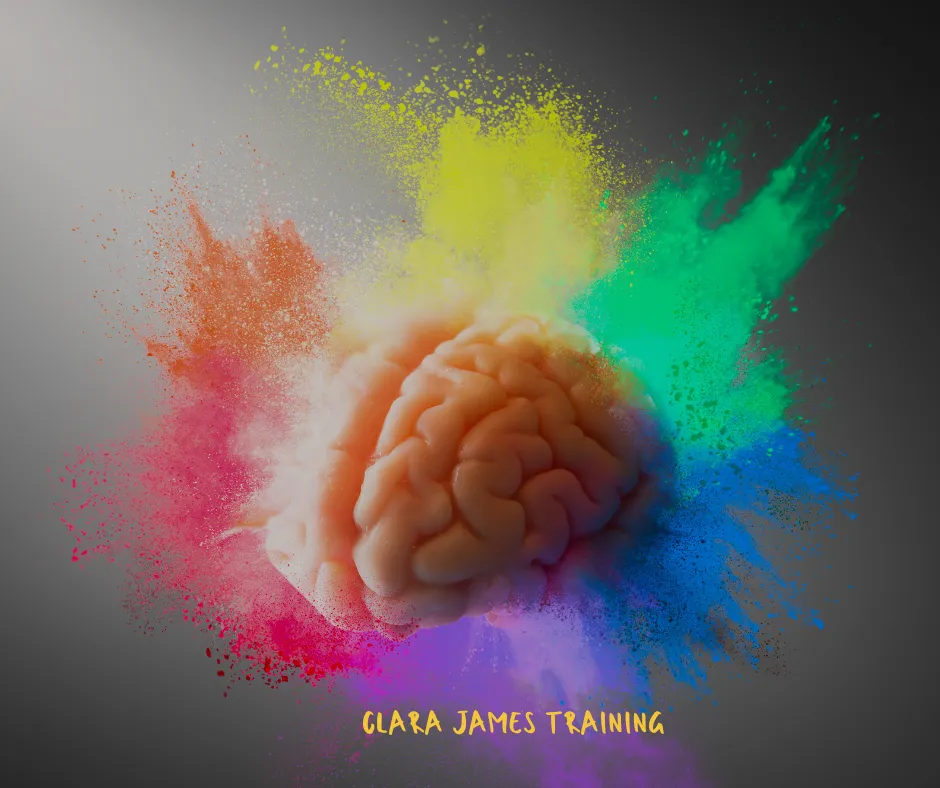Clara James Tutoring
BLOG POSTS

Practical suggestions for tutoring a child who is autistic
Practical Strategies for Supporting Children with Autism when tutoring
The purpose of the previous blog was to introduce you to autism. My goal here is to give you some practical ideas that educators and tutors can use to better support neurodiverse learners. These are just the tip of the iceberg, but I hope it will give you something to consider.
Understanding the Importance of Environment
Online Learning Environment
When you consider the online environment, you presume that is at their discretion as they are sat in a location away from your own. However, you are also contributing to it with your screen that you are sharing.
If a person is sensitive to things in their visual environment if you have too many things going on with your screen – multiple tabs open, multiple colours, images, etc this may cause a distraction that may make it difficult for them to concentrate.
Face-to-Face Learning Environment
This is where you may make much more of an impact. Some children may seek out sensory stimulation, while others might find it overwhelming. The new perfume that you are wearing may affect someone who is highly sensitive to smell. If you are working in your home, think about the air fresheners, the displays on the wall, the lighting. Florescent lighting though far less commonly used these days may make the working environment intolerable for them.
Communication Strategies
Remember that children with ASD may take things literally. For example, while explaining fractions, if you say: "cutting cake into even-sized pieces," they may become overly concerned that the cake will crumble. What seems logical to you might require adaptation for the student.
At the beginning of a session, explain the lesson plan and check if it matches their expectations. It's important to ensure that what you're teaching aligns with what they hope to achieve from the session, and they are prepared for what they will be covering.
Handling Emotions and Building Confidence
If a child becomes frustrated, give them time and space. Speak softly, be patient, and don’t take any anger personally. Use phrases like, “Would you like to do something different?” or “This is your time—if you’d prefer to do something else, that’s fine.”
Gradually work through topics at their pace, starting with areas where they feel confident. Celebrate small victories, and when needed, circle back to more challenging topics once they’ve built trust and confidence.
Individualising the Learning Experience
Tailor lessons to their preferred style of learning. Some may prefer formal worksheets, while others might enjoy more interactive methods like games or discussions. If exams are stressful, use creative alternatives (e.g., storytelling or codebreakers) to introduce necessary concepts.
Working with children who have ASD requires patience, flexibility, and a willingness to adapt. But remember that every child is different, they are not defined by a label. Get to know them and what works for them. Like I say these suggests are just a few of many and each one needs to be considered along side the child you are working with.
We are putting together a training course that each of our franchisees and tutors. If you are interested in having access to the course at an introductory price of just £79, let me know and I will send you the link once completed.
Morning,
I hope the week is going well.
So many people seem to be doing D of E and work experience
at the moment, good luck if that’s you and if you’re at Marlow Camp next
fingers crossed for good weather!
I’ve just finished a lesson on division. It seems to be
something that messes with the brains of so many people.
I found it got easier when I stopped thinking about it as
division and instead thought about it as multiplication. So, if for example I
had the question 396 divided by 3, I would look at it as 3x what = 3. My answer
would be 1. How many times would I need to multiply 3 to get to 9, (my answer
would be 3). Then 3x something = 6. My answer would be 2. Giving me the overall
answer of 132.
I know that’s a really simple example but hopefully it explains
my point.
Thankfully in schools they don’t often seem to need to do
long division, but I’ve worked with a couple of adults (generally nurses for
some reason) who have needed it.
I think I’ll explain this one in a video, as it will be too
complicated to explain it with words as bits get put all over the place. I hope
this makes sense though:
Enjoy the rest of the week and speak soon,
Dawn

